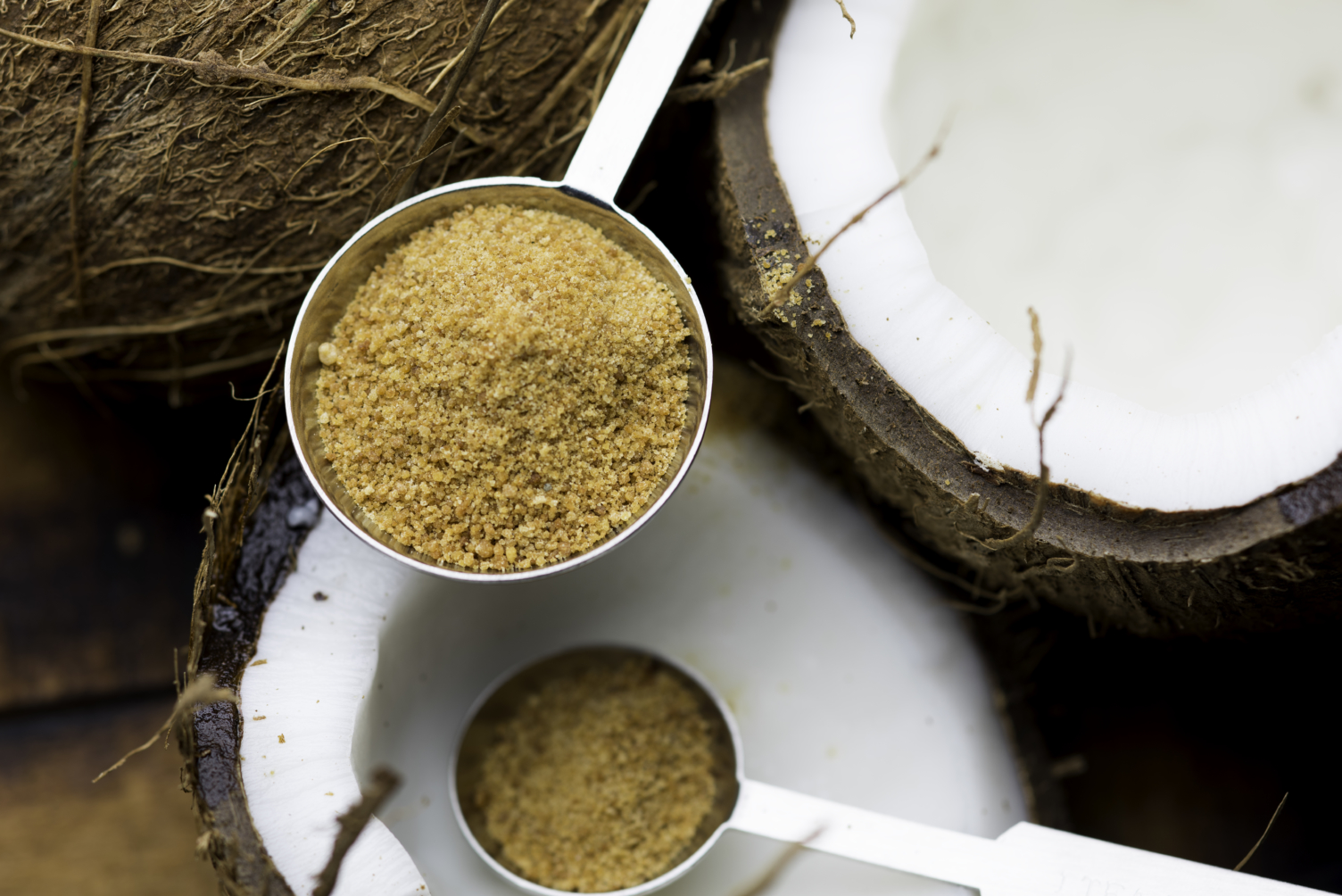
Let’s face it: a diet high in fructose and excess sugar makes you weak. Simple sugars cause food cravings, age your tissues, disrupt hormone function, sap your brain energy and dopamine, and raise triglycerides – leading to leptin resistance, insulin resistance, diabetes, and obesity. [1] [2] [3] Sugar is kryptonite squared.
A big goal of the Bulletproof Diet is to keep harmful insulin and triglycerides low and to teach your body to easily burn fat for fuel. Coconut oil and its more potent extracts (like Brain Octane Oil) are key Bulletproof foods because they contain fats that are amazing for losing weight, building muscle, and powering your brain. They even have potent anti-microbial properties. [4] Talk about superfoods.
So, if coconut is so good, coconut sugar must be Bulletproof, right?
No.
Companies have made coconut sugar popular in a short time by advertising it as a lower-glycemic alternative to table sugar. This marketing approach is the exact same trick that fructose marketers use to promote damaging high-fructose foods. It’s true that fructose doesn’t raise insulin as quickly as regular sugar does, but that certainly doesn’t make it healthy. It’s toxic to your liver and it messes with your hormones. The same is true of coconut sugar.
With that in mind, let’s separate coconut sugar fact from fiction.
The 5 important facts about coconut sugar:
- Coconut sugar comes from the sap of the cut flowers of the coconut palm. It does not contain the actual coconut fruit, the part from which most beneficial coconut products are derived.
- According to the Philippine Food and Nutrition Research Institute, coconut sugar has nutrients like iron, zinc and calcium, but not much — you’d have to eat a ton of coconut sugar to get them in meaningful amounts. You’d be better off getting these nutrients from real foods. [5]
- Coconut sugar is lower than table sugar on the Glycemic Index (GI), which ranks carbs on how they affect your blood sugar (glucose). The GI doesn’t directly apply to sweeteners because it doesn’t measure fructose, the main component of coconut sugar. Fructose ranks low on the GI because the body can’t immediately use it for energy, so it doesn’t affect blood sugar, but it’s still kryptonite. When you eat lots of fructose it goes straight to your liver, and your liver tries to metabolize it into a useful form before it causes damage (fructose is toxic in large amounts). [6]
- The major component of coconut sugar is sucrose (70-79%), followed by glucose (3-9%). Sucrose (table sugar) is made up of half fructose. That makes coconut sugar 38-48.5% fructose, which is about the same as table sugar. [7]
- Sugar is sugar, no matter what form it’s in. If you eat too much coconut sugar it’ll tax your liver, cause toxic accumulation, increase your risk of fungal infections, decrease brain function, and metabolize directly into fat. [8]
Coconut sugar is not Bulletproof. Period. It has trace amounts of some vitamins or minerals, but not enough to justify taking the fructose hit on your metabolism and liver. The bottom line is that you don’t want this stuff in your body.
Upgrade your diet with smart sugar alternatives
On the Bulletproof Diet, I recommend you eat less than 25 grams of fructose per day, and ideally a lot less. Check out the Bulletproof Diet Roadmap that suggests raspberries, blackberries, and strawberries as dessert options, not a dietary staple. These Bulletproof fruits have low fructose and a lower risk of antinutrients and mold toxin contamination.
If you’re determined to use a sweetener, stick with the most Bulletproof sweeteners: Stevia, erythritol from non-GMO corn, or xylitol from birch trees, which don’t have any fructose in them. Avoid sugar alcohols if you have problems with bacterial or yeast overgrowth.
There are plenty of delicious Bulletproof dessert recipes in The Bulletproof Diet book and free recipes on the blog, and you can easily avoid coconut sugar (and cane sugar) in all of them.
References
[1] www.ncbi.nlm.nih.gov/pubmed/16129731
[2] www.ncbi.nlm.nih.gov/pubmed/15111494
[3] http://www.sciencedirect.com/science/article/pii/S0306452210012947
[4] http://www.ncbi.nlm.nih.gov/pmc/articles/PMC3732585/
[5] http://coconutpalmsugar.com/Nutritional_Information.html
[6] http://www.drweil.com/drw/u/QAA401323/Is-Coconut-Sugar-a-Healthier-Sweetener.html
[8]http://jama.jamanetwork.com/article.aspx?articleid=1693739










